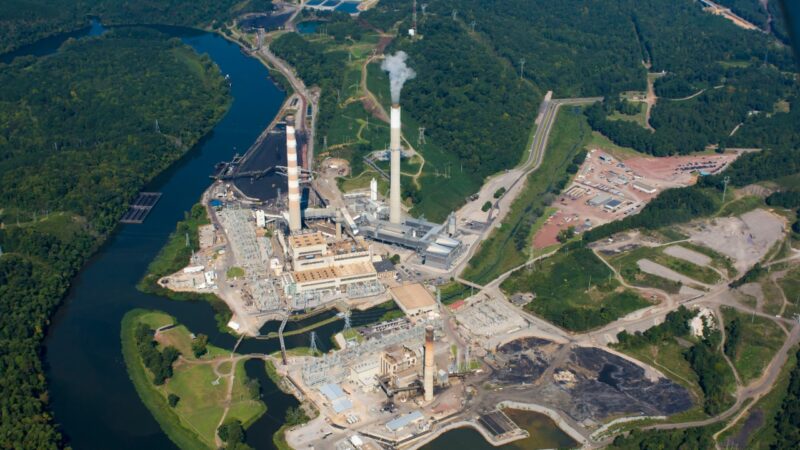EPA wants to reject Alabama’s coal ash program; says it is not protective enough
An aerial view of the William C. Gorgas Electric Generating Plant in Parrish, Alabama. The plant is one of four in Alabama that the Environmental Protection Agency raised concerns about concerning coal ash dumping.
In a first-of-its-kind decision, the Environmental Protection Agency wants to deny Alabama’s coal ash regulations, claiming the Alabama Department of Environmental Management’s (ADEM) proposed standards are too lax and don’t meet federal guidelines under the Resource Conservation and Recovery Act.
ADEM manages 16 coal ash landfills and surface impoundments — where the hazardous material left over after coal is burned for energy is stored. Currently, ADEM’s permitting allows utilities to dispose of coal ash in unlined waterfront pits, meaning that the coal ash can potentially pollute rivers, lakes, drinking water and groundwater.
The EPA made the proposal to deny the state’s coal ash program on August 3. According to its filing, Alabama’s permitting standards for these waterfront pits aren’t the same as the federal program’s and therefore weren’t protective enough to prevent groundwater contamination.
“Exposure to coal ash can lead to serious health concerns like cancer if the ash isn’t managed appropriately,” EPA Administrator Michael S. Regan said in a news release. “This is why EPA works closely with states to ensure coal ash is disposed of safely, so that water sources remain free of this pollution and communities are protected from contamination.”
In its notice, the EPA raised concerns about ADEM’s permitting for four plants: the Greene County Electric Generating Plant, the Gadsden Steam Plant, the William C. Gorgas Electric Generating Plant and the TVA Plant Colbert.
Coal ash pollution and contamination is an environmental justice issue for most of Alabama’s Black Belt region, said Ben Eaton, the president of the advocacy group the Black Belt Citizens for Health and Justice. Eaton believes that ADEM’s program needs more scrutiny and should match federal standards, with many of the least regulated dump sites being located in vulnerable communities.
“Most communities of color between [the] Mississippi line over to the Georgia line would have some kind of problem,” Eaton said.
If the EPA’s denial of Alabama’s permitting process stands, the state’s facilities would have to meet federal guidelines, which could force utilities to dig up and move tons of coal ash in unlined pits in order to be in compliance.
The EPA will seek comments for 60 days as part of the next step for the denied proposal. There will be an in-person public hearing on September 20 and an online public hearing on September 27. Both start at 9 a.m.
This story was produced by the Gulf States Newsroom, a collaboration between Mississippi Public Broadcasting, WBHM in Alabama, WWNO and WRKF in Louisiana and NPR.
My doctor keeps focusing on my weight. What other health metrics matter more?
Our Real Talk with a Doc columnist explains how to push back if your doctor's obsessed with weight loss. And what other health metrics matter more instead.
Baz Luhrmann will make you fall in love with Elvis Presley
The new movie is made up of footage originally shot in the early 1970s, which Luhrmann found in storage in a Kansas salt mine.
Forget the State of the Union. What’s the state of your quiz score?
What's the state of your union, quiz-wise? Find out!
A team of midlife cheerleaders in Ukraine refuses to let war defeat them
Ukrainian women in their 50s and 60s say they've embraced cheerleading as a way to cope with the extreme stress and anxiety of four years of Russia's full-scale invasion.
As the U.S. celebrates its 250th birthday, many Latinos question whether they belong
Many U.S.-born Latinos feel afraid and anxious amid the political rhetoric. Still, others wouldn't miss celebrating their country
SNL mocked her as a ‘scary mom.’ In the Senate, Katie Britt is an emerging dealmaker
Sen. Katie Britt, Republican of Alabama, is a budding bipartisan dealmaker. Her latest assignment: helping negotiate changes to immigration enforcement tactics.








